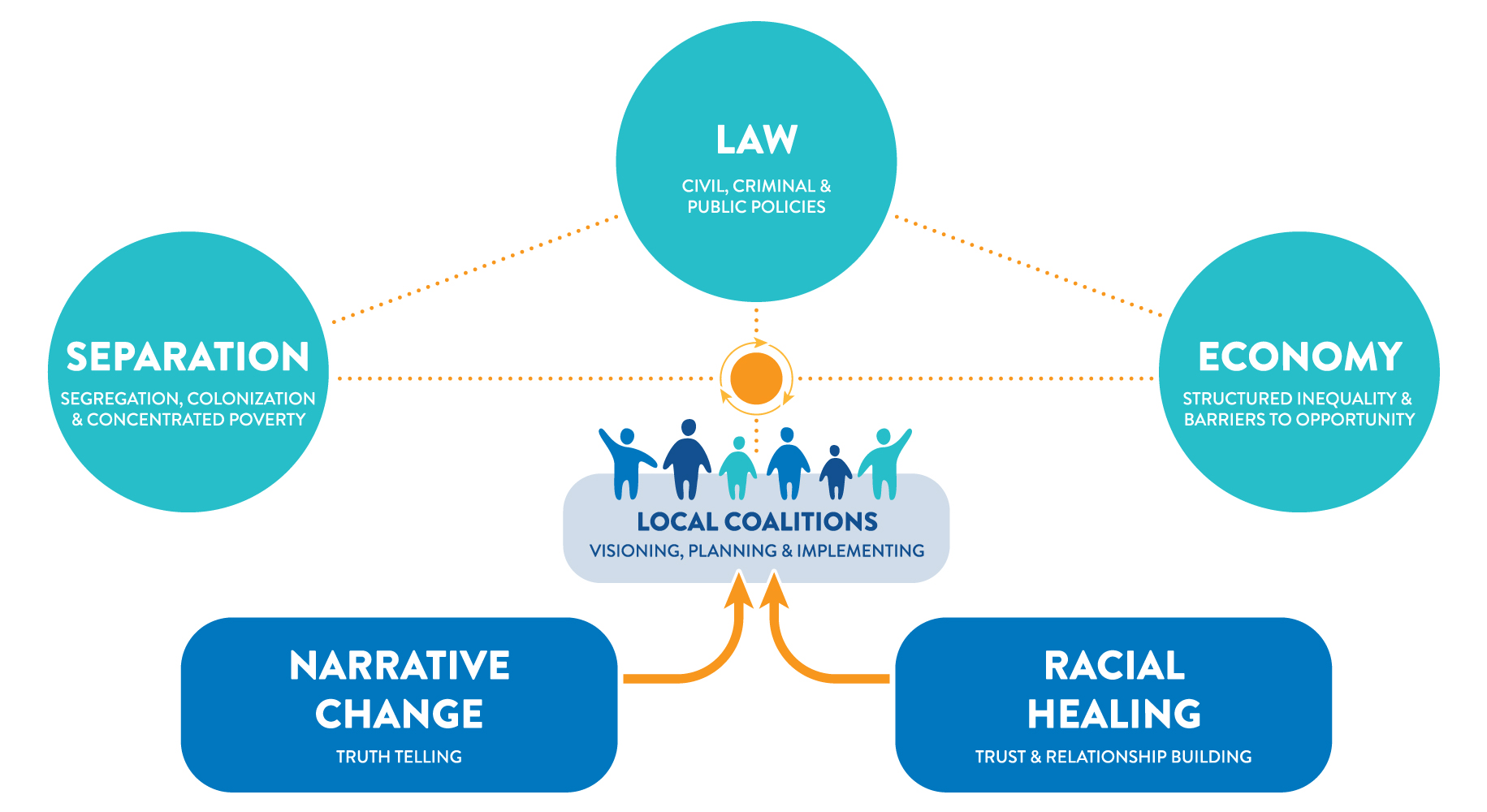Definitions
The important concepts underlying the work of the Truth, Racial Health, and Transformation Initiative

Definitions
Narrative Change
A narrative reflects a shared interpretation of how the world works, who holds the power, and how it is embedded in and supported by the dominant narrative; a successful narrative change shifts power, people’s perspectives, perceptions, behaviors, and dominant narratives about and towards one another.
Racial Healing
A process that is undertaken by individuals in communities to recognize our common and shared humanity, acknowledge the truth of societal past wrongs, and build authentic relationships capable of transforming communities and shifting the national discourse.
Relationship Building
A process to build mutually respectful relationships across racial and ethnic lines that honor and value each person’s humanity and to build trusting intergenerational and diverse community relationships that better reflect our common and shared humanity.
Separation
Examines and finds ways to address segregation, colonization, and concentrated areas of poverty in communities to ultimately ensure equitable access to health, education, and jobs.
Law
Focuses on reviewing the discriminatory, civil, and criminal laws and public policies that come from them to recommend solutions that will produce a fair and just application of the law.
Economy
The study of structured inequality, inequity, and the barriers to economic opportunities and then recommendations and approaches that can create an equitable society.
To evaluate a TRHT process, employing a culturally responsive evaluation (CRE) approach grounded in the lens of transformative evaluation is perhaps most appropriate. The transformative lens acknowledges that “reality is socially constructed and that specific characteristics associated with more or less power determine which version of reality is accepted as real” (Mertens, 2009).
When evaluation is approached in this framework, one intentionally seeks out the voices that often go unheard in order to bring them into clear focus and understanding. This lens requires a shift from thinking about how you reform or change a policy, practice, or program and instead seeks to fundamentally transform it into something altogether different in an effort to achieve social justice. The transformation should lead to something new that creates and re-creates racial equity, rather than validating a hierarchy of human value based on race.